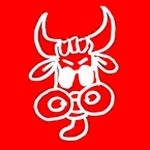Title: The Software War: Protect vs. Unprotect - Unveiling the RWTS Protection Saga of VisiCalc
Introduction
In the realm of computing history, few episodes have captured the essence of technological rivalry and ingenuity quite like the software war that ensued after the unveiling of the prtction created by Steven Wozniak, in the Read-Write Track Sector (RWTS) protection mechanism in VisiCalc, the pioneering spreadsheet software The ensuing battle between those seeking to protect software code and those aiming to break through those defenses created ripples that extended beyond just lines of code. This article delves into the captivating narrative of the RWTS protection in VisiCalc and the subsequent protect vs. unprotect struggle that transpired, impacting the software industry for years to come.
VisiCalc: Revolutionizing Productivity
In the late 1970s, VisiCalc emerged as a groundbreaking innovation, revolutionizing the way businesses managed and analyzed data. Created by software luminaries Dan Bricklin and Bob Frankston, VisiCalc was a spreadsheet program designed for the Apple II computer. It allowed users to enter, manipulate, and analyze data using an intuitive interface. The software's potential was immediately evident, and it gained immense popularity, transforming the Apple II from a hobbyist's machine into a business tool.
The RWTS Protection Mechanism
To safeguard their intellectual property and ensure their software wasn't easily copied, VisiCalc's developers implemented a copy protection mechanism known as Read-Write Track Sector (RWTS) protection. This protection involved encoding the software in a way that made it difficult for unauthorized users to duplicate or modify the software. Steven Wozniak, the legendary co-founder of Apple, played a significant role in creating this protection mechanism.
The Battle Begins: Protect vs. Unprotect
VisiCalc's RWTS protection posed a challenge to both software pirates and legitimate users. While it successfully thwarted many copying attempts, it also hindered users from making legitimate backups or modifying the software for their specific needs. This dilemma set the stage for a software war between those striving to protect the software's integrity and those attempting to unprotect it for more user flexibility.
Enter the "Software Liberation" Movement
The inability to make backups and customize the software frustrated many legitimate users. In response, a subculture of "software liberators" emerged, determined to break through the RWTS protection and free software from the confines of copy protection. These enthusiasts believed that software should be malleable and accessible to users who purchased it.
Cracking the Code
Over the course of two years, various groups and individuals dedicated their efforts to reverse-engineering VisiCalc's RWTS protection. The "crackers," as they were known, utilized creative tactics, reverse engineering techniques, and collaborative efforts to uncover the protection mechanism's weaknesses. Their achievements paved the way for software users to unprotect and modify VisiCalc for their needs, inadvertently fueling the early software customization movement.
Legacy and Impact
The battle between protectors and liberators surrounding VisiCalc's RWTS protection had far-reaching implications for the software industry. It highlighted the delicate balance between protecting intellectual property and fostering user flexibility. As software piracy remained a concern, software developers began exploring more user-friendly copy protection mechanisms that would strike a better balance.
Moreover, the "software liberation" movement laid the foundation for the open-source software movement that would gain momentum in the following decades. The notion that software should be freely accessible and modifiable by users contributed to the ethos of collaboration and sharing that underpins many modern software development practices.
Conclusion
The protect vs. unprotect struggle that followed the RWTS protection implementation in VisiCalc is a captivating tale of ingenuity, determination, and the clash of ideals in the burgeoning world of software development. It exemplifies the challenges and debates that have shaped the software industry, leaving a lasting legacy that continues to influence software development and user rights to this day.
_________________________________________________________________________________________________________________________________-
I took two logo from the iNet as an illustration of an article about this war that started in 1979 with the Visicalc protection done by S.Wozniak and that it took us 2 years to unprotect, I brought the photo code of the RWTS of club d'Apple hackers of Issy-les.Moulineaux I memorized the CALL from the screen (26 bytes) of its president Pierre Crespi who gave me the demo IN MY NOSES but he didn't want to give me the code.. when I got to home of my student Jean Luthringer, CEO of Winchester France I rewrote to him in hex "par coeur" and he was stunned by my visual memory, hahaha In fact today after 40 years, it is open source


Comentaris publicats
Afegeix-hi un comentari: